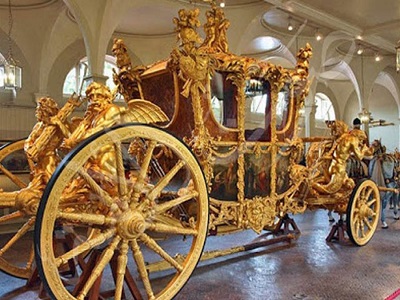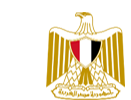The Royal Carriages Museum
The
Royal Carriages Museum in Boulaq is one of the earliest of its kind worldwide,
both from the prospect of the authenticity of its building and the originality
of its displays. The building was particularly adapted to preserve the cultural
heritage of the royal carriages and all related material dating back to the era
of Mohammed Ali Dynasty.


The
idea of establishing the museum building dates back to the reign of khedive
Ismail (r. 1863- 1879), who thought of founding a special structure for housing
the horses and the khedivial carriages. Initially, the establishment was called
the “Khedivial Carriages Service”, then its name was changed in 1922 to “Royal
Stables Department (Royal Mews)” under the reign of king Fouad (r. 1917- 1936).
Being
the focus of royal attention, this establishment was provided with all
specialized experts and skilled workers. The building was converted into a
museum after the revolution of 1952.
The
Museum houses a unique collection, of which the most notable are various sizes
and types of royal carriages, one of the most distinguished objects in the
Museum is the grand Alay Carriage, which is characterized by its finest
workmanship and elaborate decoration. It was the gift of Emperor Napoleon III
and his wife Empress Eugenie to Khedive Ismail on the occasion of the Suez
Canal inauguration in 1869. King Farouk ordered its restoration and used it on
the inauguration of the Parliament in 1942, also its contain horse riding
equipment, uniforms of the Carriages Service employees, as well as oil paintings
dating to the same era.


Worthy
of note is that few museums all over the world are specialized in exhibiting
this kind of displays, for examples museums in Austria, France, Russia, and
England.
The Royal Carriages
Museum on Google Maps
Source:
Ministry of Antiquities
last Update: 2024


